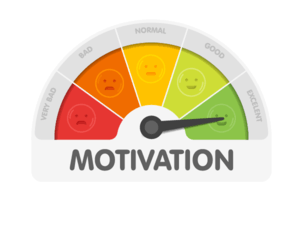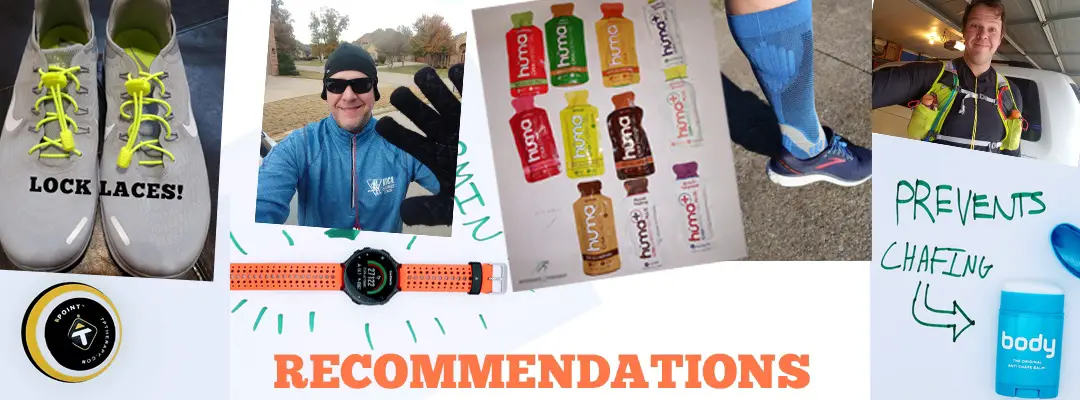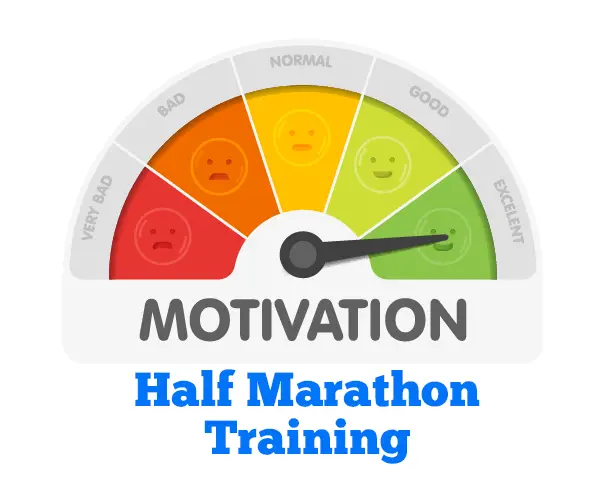Half Marathon Motivation – Pros vs. The Average
I’m by no means a pro but I try to think as a pro runner would. Some runners have difficulty running more than 6 miles because they say they get bored. The truth is all great athletes go through this boring mode. I’ll call it the grind, or the day-to-day norms. Some people can’t keep going when this sets in.
What makes the difference between a true athlete and just an average athlete is that the true athlete still shows up and gives it his all for that boring training session. The average athlete just doesn’t show up or doesn’t complete the training for that session.
Obviously, the Pros get paid to race or paid when they place in a major running event. The average runner doesn’t. This is all about mindset. Most of my readers aren’t out chasing a sub-two-hour marathon. They fall somewhere between the new runner to the intermediate/advanced runner.
If you want to run a sub-two-hour half marathon then write your goal down and get a training plan that can get you there. Also, remember don’t jump out too far in what you can achieve, this is a sure way to quickly go wheels off and crash.
Poor Time Management
If only you had more time… This is a bigger issue for your married individuals that have kids. Single individuals can be kidless and still have limited time because of obligations to work or an extra invigorating social life. Every day we make decisions based on how much time we currently have to do something.
Sometimes we have to take a step back and look at our habits from a bird’s eye view on a daily basis. I’ve done this a few times in my life so that I can see where all of my time was spent. The easiest way to figure out your current time workload is to create a simple one-page habit tracker.
Check out How to find time to train for a half marathon.
Create a daily habit list
To get started, create a table with 5-7 daily habits that seem to eat up your day. If you can’t think of anything, then you’re in denial. List all of your habits on the far left side of the paper. Across the top of the sheet of paper (x-axis) List the time of the day by waking hour for every 1/2 hour. You should end up with a list of habits such as these:
- Social Media
- Reading
- Exercising
- Researching/Surfing the Web
- Daydreaming
- Productive Work – Focused
- Productive Work – Simple
Related: Why Identity Is Everything When Forming New Habits
After you’ve tracked your habits for a week or two, you should be able to get a good depiction of where all of your time is spent. When I did this habit tracking exercise towards the middle of last year, I found that one of my most time-consuming weekly habits was doing yard work.
I outsourced this and now I freed up that chunk of time that was spent maintaining my lawn. Some might have to do the work themselves because of the cost of having to pay someone to maintain their lawn.
Quite often there is an opportunity cost associated with changing your habits. This cost can be monetary or time-based. The trick is to free up the time to focus on getting your most important goals accomplished without giving up other needs and requirements. The real takeaway from tracking your habits is that you need to free up time every week to put your running hours in. No running = no half marathon. 5 ways to boost half marathon motivation on race day.
Injuries
Injuries are such a booger. They can happen for so many reasons. I had a friend recently tear her ACL because she was showing her daughter how to land properly on her legs while performing a back handspring. She wasn’t even performing the back handspring she simply jumped in the air a couple of inches off of the ground and landed. Upon landing she heard a snap, that was her ACL tearing.
What does this have to with running, actually quite a lot? Injuries can easily happen anywhere to any of us at any time. I also had a friend who was a semi-pro bicyclist badly injure his ankle from stepping out of his camper and landing directly on a crushed Dr. Pepper can. Crazy right?
The saying goes:
- if you’re injured, don’t run
We should all heed these words of advice, however, you would be surprised how some people keep running and running even though they are injured and causing more injury because they continue to run. Taking off a week from running will not affect your performance. If something doesn’t exactly feel right and I start to feel an ache, I will ease up on the running for a few days. After a few days off I lightly get back into running to see if the injuries are still there.
Related: How To Not Get Injured During Marathon Training?
Unwilling to take responsibility for your own actions
You would think that any college graduate would learn this lesson by 30 years of age. I was this person. I mean I obviously understood this lesson to some degree but not in its entirety. Around the age of 31, I realized that I couldn’t keep blaming previous jobs, girlfriends, parents, etc. for where I was at life.
I couldn’t blame my boss for me not receiving stock options prior to our company being acquired. It was time to start realizing that I am where I am now because of all of the decisions I have made up until this point. No one else has made this determination but me!
My upbringing was average. The same parents are still married after 50 years. No detrimental earth-shattering events in my earlier years. My father was a hard worker. If I had anything to whine about from youth it would be my father not spending enough time with me.
Break Free of Limited Beliefs
Some of us didn’t have it so easy. Divorced parents, tragic early life events, and a list full of show-stopping events that no kid should see at an early age. Some of us break free of these ill thoughts because of the perception we had at the moment of the event. The day that any of us can truly break free and acknowledge that everything we do is a direct result of our action(s) – we will be liberated.
When something doesn’t go right in one of your races, it’s easy to blame someone else. Once you acknowledge that your actions are your responsibility you can change and move forward carving out a better path ahead. The dead-end job, the extra weight that packed on from years of eating bad, these were all decisions that you made at one point in your life. I know cause I have been there.
Sometimes we need to refocus our energies on the mental side of running by forming a running mindset. When the runs get tough your physical fitness will keep you going. After your energy runs out you need to have a strong mental focus on what you want and desire. After the energy runs out, the mental battle of running gets tough.
Related: 10 Tips To Keep Running When You Feel Like Stopping
Step Up Today
Today is the day to put away those fears, that anxiety. Write it down –> I am going to become a half marathon race finisher. Believe it! Visualize it! Become it! Your mind can help your body achieve things that you may just now begin to understand. Running changed my life for the rest of my life. I can never go back, nor do I want.
Don’t go into a half marathon race week unprepared, check out my 7 days prior to a half marathon race checklist.
Don’t end up hating the act of running
If you feel yourself starting to really have negative thoughts about running, you might need to take a small break from running. If the motivation just isn’t there, seek out your “why” again. Why did you start running? Here is a post I wrote about what to do when you hate running and how to help eliminate the hate from your life.
| Help support me and subscribe to my YouTube channel. YouTube video - 30 ways to make your runs less painful! Coach Scott's Credentials:
|
To sign up for a FREE half marathon training schedule, log sheet, and pace predictor CLICK HERE.

Recommended gear for runners
Connect with me:
| facebook.com/BeginnerToFinisher/ |

